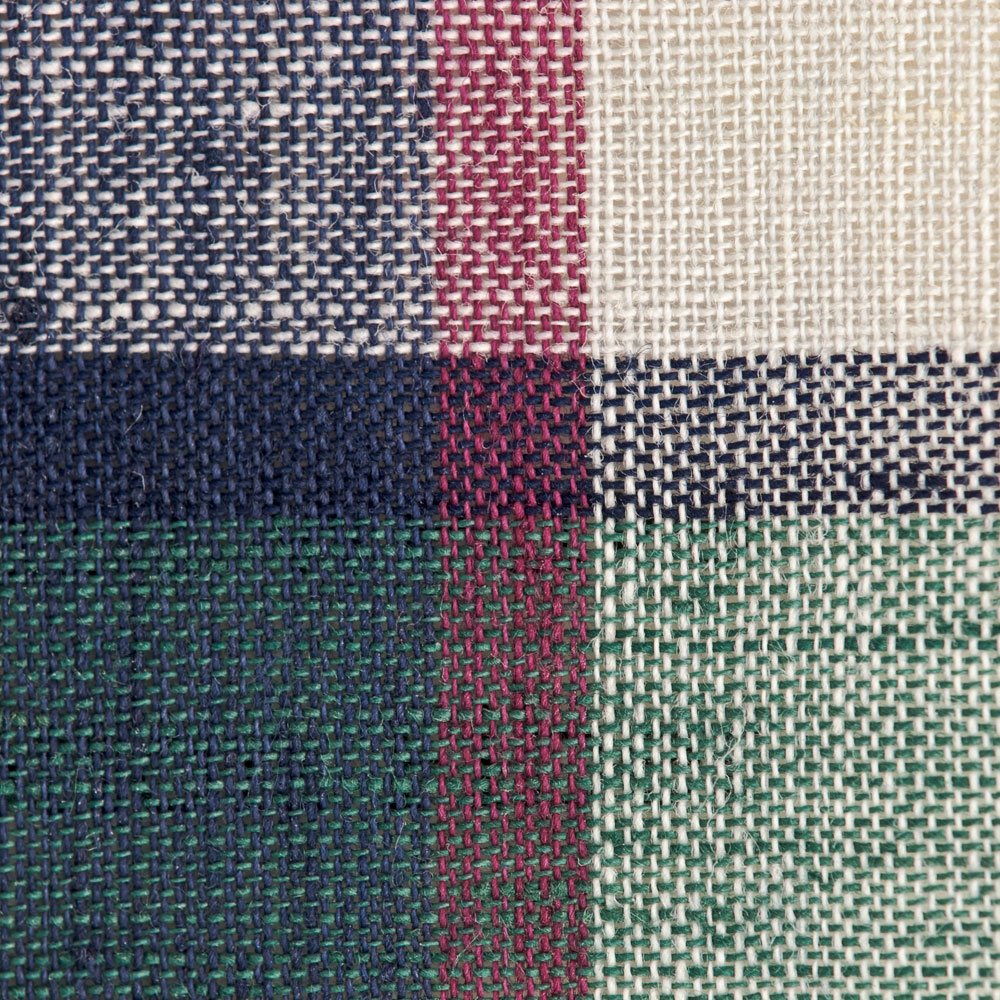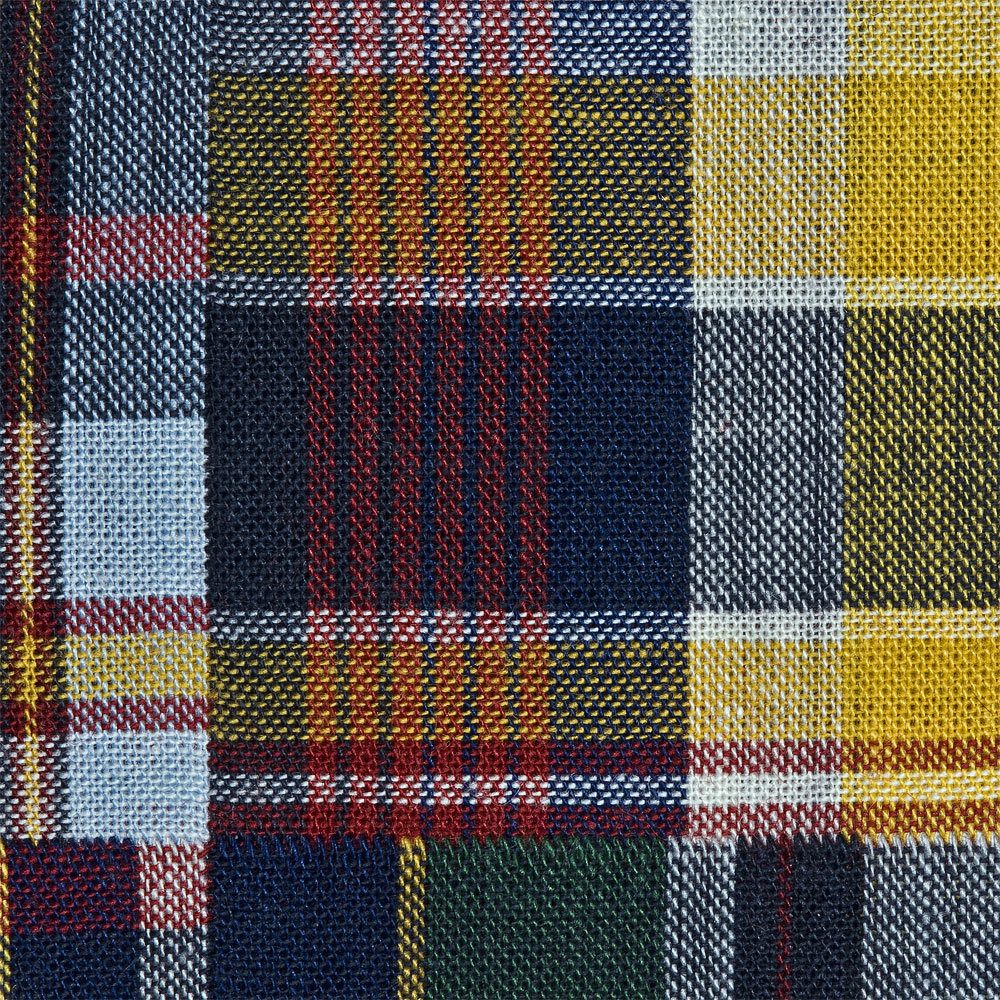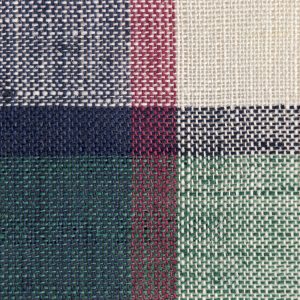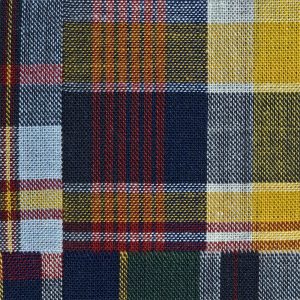Many cotton fabrics are woven in Madras, India, but the name by itself is used to describe a plain weave hand-woven fabric usually with a plaid, striped or checked pattern. The vegetable dyes used are often not permanent, and one of madras’ characteristics is its softened colors from dye bleed. This is not only expected but encouraged; some weavers keep their threads wet to create dye bleed even in the weaving process. If a similar fabric is made anywhere but Madras, the U.S. Federal Trade Commission has for decades required that it is clearly marked as an imitation.
Uses: Shirts, dresses



